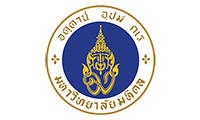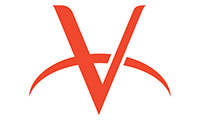FIELD BUILDING LEADERSHIP INITIATIVE
Introduction
Field Building Leadership Initiative is a five year program, funded by the Canadian International Development Research Center, which focuses on solving human health problems associated with agricultural intensification and other challenges. Within SEA countries, agricultural intensification has and is further expected to have profound implications for ecosystems and health.
The FBLI has three interlinked components: i) research component, which serves as the backbone of the program for other components; ii) capacity building strengthening ecohealth capacity and leadership through university degree training, training-of-trainers activities, and future leaders training and development; and iii) knowledge translation component promoting dialogue between the research and policy communities and building capacity to translate research evidence to inform and influence policy decisions.
Vision
Throughout Southeast Asia, agricultural intensification practices and related processes are driving forces that profoundly affect people, ecosystems and health. Ecohealth provides holistic approaches and collaborative platforms to help synchronize partners in the region against negative health impacts from agricultural intensification.
By understanding and adapting ecohealth concepts through better inter-sectoral, institutional and transdisciplinary collaboration, innovative and practical solutions are developed through participatory action research with local communities and stakeholders. Mechanisms to bridge people and bring different types of actors together enable changes in thinking, behavior and action.
By building capacity and leadership in ecohealth, systems thinking is recognized in university teaching and ecohealth becomes a well-respected field of study and practice. Field research and various training and exchange opportunities help foster a new generation of leaders and brokers in ecohealth. Knowledge translation processes and products inform and influence both policy and practice. The voice of SEA becomes more prominent in international forums and debates.
The ultimate impact is seen in more sustainable agricultural practices and livelihoods, and in healthier people and environments.
Objectives
The overall objective of the FBLI program is to build the field of ecohealth by integrating research, capacity building, policy and networking to focus on solving human health problems associated with agricultural intensification in SEA countries.
We have articulated four specific and interlinked objectives for our work:
1. Conduct transdisciplinary, multi-country, multi-institutional, gender-sensitive and participatory ecohealth research to address human health problems related to agricultural intensification.
2. Strengthen the capacity within SEA for ecohealth research and practice by developing institutional capabilities to deliver ecohealth training, provide a range of training materials and course offerings, and mentor early-career professionals to build leadership and expertise in the ecohealth field.
3. Engage key policy makers – at local and national levels – to interact with the ecohealth research teams, sites and communities to ensure that the emerging research findings will inform and positively influence policy and practice in the field.
4. Facilitate networking-of-networks and knowledge sharing at national and regional levels – linking with key events in the region – to mainstream ecohealth approaches and foster the development of the ecohealth field in the region.
Outcomes and impact
As a result of the five-year FBLI, we wish to contribute to these outcomes:
1. Ecohealth is well-positioned to become a sustainable dynamic field in the region beyond the life of the initiative, led by a new generation of ecohealth researchers and practitioners. A vibrant and visible ecohealth research community has emerged in Southeast Asia, strengthening the voice and elevating the role of researchers and actors from the region in key global arenas and discourses (e.g., in the IAEH, One Health Initiative).
2. Path-breaking research findings and practical solutions have emerged from site-based ecohealth research conducted in at least four Southeast Asian countries, underpinned by participatory action research approaches to locally defined problems and issues.
3. A robust and critical mass of training materials and pedagogy, regional cases, best practices, and regional short courses and degree programs – developed in collaboration with partners, master trainers and mentors – are available for future use and adaptation by a range of stakeholders at local, national and regional levels.
4. Strong and enduring linkages among policy makers and researchers have been established, enabling the effective uptake and use of research findings and evidence in policy formulation and implementation.
We envision that the long-term impact of the FBLI program in the region will be a well-established field of ecohealth that is sustainable (through networking and funding support from diversified national and international sources), institutionalized (through joint MoUs and adopted curriculum among consortium partners), influential in global processes that drive environmental and health policy and practice, and supported by a strong community of practice that includes key researchers and policy makers.
Organizational Structure and Governance - FBLI Consortium
Implementation of FBLI takes place over a five-year lifespan, with primary focus on four countries: China, Indonesia, Thailand and Vietnam.
The principal implementing partners in the FBLI consortium are:
* Health Systems Research Institute, Ministry of Public Health, Thailand
* Department of Environmental Health, Hanoi School of Public Health, Vietnam
* Center of Excellence for Vectors and Vector-Borne Diseases, Faculty of Science, Mahidol University, Thailand
* Institute for Health and Development Studies, Kunming Medical University, China
* Kunming Institute of Botany, China
* Faculty of Public Health, Universitas Indonesia
* Veterinarians without Borders/Vétérinaires sans Frontières-Canada (VWB/VSF)
These seven partners entered into a joint Memorandum of Understanding that reaffirms: their support and commitment to FBLI; collaboration with each other; the roles of the RCG members, and the scope of activities planned under the program.
In addition, in each country, a number of universities and research institutions and NGOs working in agricultural, human and animal health, and education and technology sectors will also participate in specific activities.
The FBLI organizational and governance structure will comprise two key entities: Regional Core Group and Coordinating Unit
Regional Core Group
FBLI implementation is led by a Regional Core Group (RCG) consisting of 8 members who represent key organizations, different sectors and other regional networks involved in ecohealth.The RCG members have diversified backgrounds, including extensive knowledge and experiences on transdisciplinary research design and implementation, an essential principle of the ecohealth approach. This group has been intimately involved in the FBLI proposal development process, and is committed to jointly carrying out the planned future work.
Coordinating Unit
The FBLI Coordinating Unit is hosted by the Vietnam Public Health Association, Hanoi, Vietnam, to serve as the central administrative hub for FBLI. This unit works closely with the Program Coordinator and Program Officer, and other members of the RCG. Key functions include: liaising with the RCG and other partners, providing logistical support and arrangements for FBLI meetings and workshops, and contracts, and supporting the Program Coordinator and Program Officer to monitor the progress and financial situation of the initiative.












